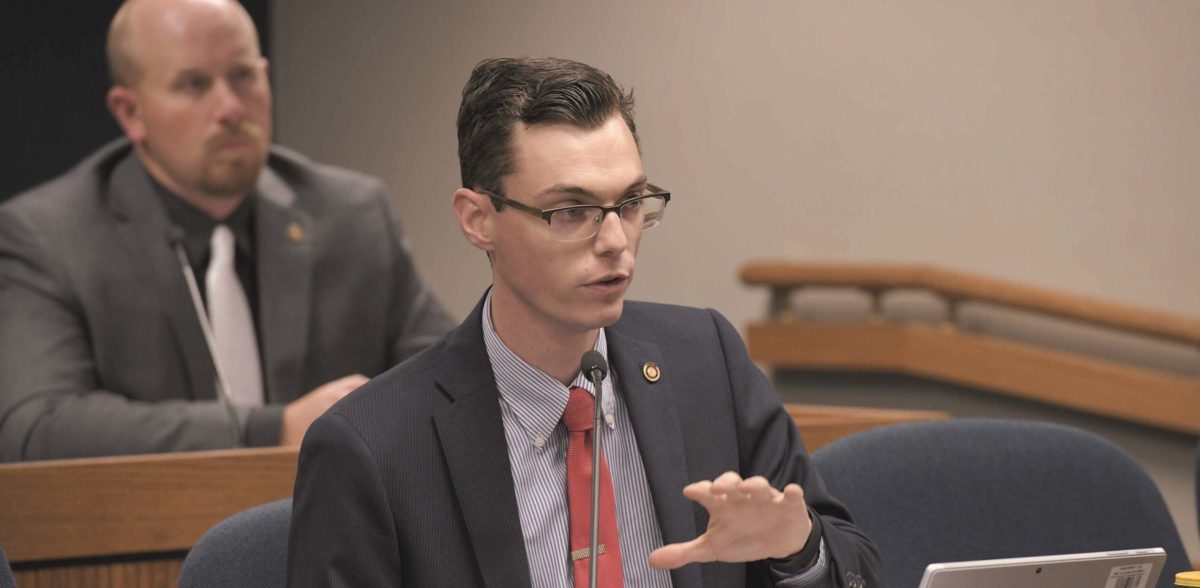Penn National Gaming raised had an interesting take during a hearing on Missouri sports betting when they referred to in-person registration requirements as a good practice for the state. For obvious reasons, this has not been a position other platforms have taken.
This has many wondering if a recent purchase by Penn National has anything to do with it. It’s been reported the group spent $163 million to buy a 36% stake in Barstool Sports. This deal gives sole rights to use the Barstool Sports brand for online and retail sports betting as well as online casino products.
Common sense says forcing people to travel to a casino to set up a mobile sports betting account would limit their revenue potential and the advantage of having a popular online brand.
“That is something that we’ve seen work really well,” said Todd George, executive vice president of operations for Penn National. “It’s a middle ground for us.”
In-person registration is currently required only in Nevada and Iowa but also pending in Illinois. Interestingly enough, Penn National has casinos in all three states.
Lawmaker Push Back
Rep. Dirk Deaton was quick to state the obvious as many Missourians live up to four hours from any casino, and this requirement severely inhibits their participation in a now legal activity.
“So you’re unnecessarily excluding those people from something that’s going to be allowed within the state,” Deaton said. “It seems like the opportunity ought to be equally accessible to all Missourians that are eligible.”
This take has caused some confusion as neither bill discussed in the hearing in the House Special Committee on Government Oversight carries language requiring in-person registration.
Missouri Sports Bills Look Similar
The two Missouri sports betting bills discussed were Rep. Phil Christofanelli’s H 2318, which is the most industry-friendly of bills introduced, and Rep. Cody Smith’s H 2284.
Rep. Smith chairs the House Committee on Budget and has offered one of the few bills nationally to include both an integrity fee and official league data mandate to give professional sports leagues two big wins.
However, he has indicated a committee substitute could remove the integrity fee.
This leaves the only major differences between the two bills: the tax rates of 9% for H 2284 and 6.75% for H 2318.
The official notes released by the Committee on Legislative Research Oversight Division projected that legal sports betting could generate between $202 million and $253 million in adjusted gross receipts.
Some differences remain as the report estimated Smith’s bill would produce between $16.3 million and $20.5 million for the state plus an additional $1.8 million to $2.2 million for local dock cities annually. Meanwhile, Christofanelli’s lower tax rate would bring between $12.2 million and $15.3 million plus $1.3 million to $1.7 million to local dock cities.
Industry Supports Christofanelli
Both George and Mike Winter, the executive director of the Missouri Gaming Association, are supporting H 2318 over H 2284. Winter then indicated that removal of the integrity fee took away a great deal of their opposition toward H 2284.
However, they still don’t like the data provisions. George indicated that he wasn’t aware of any problems related to data in states that don’t require the use of data. He also noted that Nevada has been offering sports betting for decades without any such a requirement.
“I think we end up litigating things like that to try to determine what is a reasonable rate,” Winter said.
The hearings ended without any action on the bills, and it looks as if it will remain in a holding pattern. That said, Missouri is inching forward to the finish line no matter how many curveballs they are thrown.




